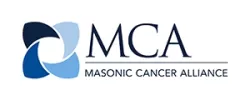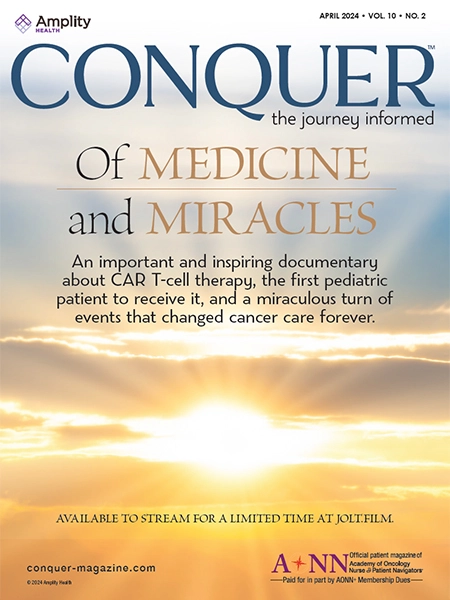Guests of AONN+’s East Coast Regional Meeting were back to business bright and early Saturday. For patient navigators, this meant spending their morning sitting the Oncology Patient Navigator-Certified Generalist beta exam.
AONN+ would like to thank these individuals for their participation in the certification process and congratulate them on their accomplishment. AONN will host the official Oncology Nurse Navigator and Oncology Patient Navigator certification exams in November 2016 during its Seventh Annual Navigation & Survivorship Conference in Las Vegas.
 |
For all remaining attendees, the day began with breakfast and the first N.E.X.T. Day Track, which was sponsored by Takeda Oncology.
Survivorship Care: Planning for Action
As patients are living longer, Tanya Price stressed the importance of developing a survivorship plan. She said it was important that the survivorship plan be customized to the individual patient’s needs. Price provided an overview of this type of plan covering various aspects of care. She spoke of fatigue, sleep, and sexual health.
Price also discussed various resources to access when considering survivorship plans for patients. She mentioned getting out and networking with various practices or cousin medical institutions to integrate different ideas regarding implementation of a survivorship plan.
During the question and answer session, several topics were discussed. Price mentioned that survivorship care guidelines might be addressed in standards in the near future.
Reimbursement was also discussed and how to address various types of care throughout the provider spectrum, whereas the primary care provider might be responsible for following a patient’s lipid profile. She spoke of the financial implications of cancer treatment, and how pharmaceutical companies can help with the cost of medications.
 |
Journey Connections
Andi David walked attendees through the use of the Journey Connections tool, which was developed to connect patients and caregivers with local resources to help them with their care. Several navigators spoke of their experiences with the tool.
During the question and answer session, Sharon Gentry encouraged navigators to offer feedback about their experience and to think outside the box in terms of what type of resources should be known and available to patients. Navigators responded by talking about various resources, regarding everything from snow removal to dental services to utilizing various languages so people who have English as their second language can gain access to more resources.
 |
Treating Relapsed/Refractory Multiple Myeloma
Donna Catamero presented on her experience using Pomalyst for patients with relapsed or refractory multiple myeloma. Catamero commented on dosing, therapy modifications, and administration of this therapy. The various capsule strengths of the medication are color-coded, and Catamero says it is a good idea to create a dosing calendar for patients to help them keep adherent.
Catamero mentioned that patients still smoking while on this therapy will experience a decrease in absorption. She also advocated for the flu vaccine, but not the shingles vaccine, for patients when using this medication. She said some of the more common side effects were fatigue and low grade fever.
She reported that 92% of patients stayed on this therapy, and those patients on this medication have a survival rate of 12 months versus 8 months compared with patients not using this therapy.
 |
Oral Adherence: New Strategies for Success
Tanya Price took to the stage again to discuss the expanding use of oral therapy, including how to help patients with this type of regimen.
Price spoke of the inherent challenges of adherence, including patient belief theories in how to self-treat as well as a lack of communication between patients and providers. She spoke of the importance of provider and patient engagement to help alleviate oral therapy adherence.
She discussed case examples and provided some prospective assessment questions to help navigators get patients to think about why they are nonadherent with their medication regimen.
 |
Following lunch, Meeting Chair Sharon Gentry, RN, MSN, CBCN, CBEC, greeted the audience and provided a recap of the prior day and morning’s activities.
A Review of the Cancer Care Landscape
The afternoon kicked off with an in-depth discussion about changes in the cancer care landscape provided by Christin Engelhardt, BS. During her presentation, Engelhardt highlighted both broad and state-specific policy changes that affect the way patients across the board will access care in the near future. She then touched upon the various value-based care models and quality measures that may be used to guide care and payments.
Engelhardt focused on the Oncology Care Model, looking specifically at changes in Medicare Part B, Medicare Advantage plans, the 340B program, and the Affordable Care Act (ACA).
She asked how many people had known about the Oncology Care Model, and a number of navigators raised their hands.
In discussing the new changes to the Medicare Part B payment model, she expressed her uncertainty of this new plan and how, or if, it will be implemented. She mentioned it being controversial, but also said the Centers for Medicare & Medicaid Services might be responsive to the public comments that were being collected.
She also talked about clinical trials, looking at the ACA as it pertains to cancer care. Other interesting developments related to the ACA include that the most expensive drugs are often placed in higher tiers. California has created legislation on cost-sharing limits, and Engelhardt said the state is a model for the rest of the country in how they approach this ongoing challenge.
She then transitioned to a discussion about the importance of care plans/planning in this evolving environment, and how the PACT Act helps to support the use of these tools. The final portion of Engelhardt’s presentation focused on the various resources that are available to navigators and cancer survivors through the National Coalition for Cancer Survivorship website.
 |
Depression Through the Cancer Care Spectrum
Carole F. Seddon, LCSW-C, MA, and Laura Herald Hoofring, MSN, APRN-PMH, BC, next took the stage to talk about the ways in which depression can increase risk among oncology patients. “Depression is an equal opportunity disease,” said Seddon. She stressed that patients cannot do this alone and need help with social support from people in their lives.
This engaging presentation focused on the importance of ruling out delirium when assessing patients as well as the various ways in which depression can present in people.
Hoofring talked about how patients might be demoralized rather than depressed, and alleviating one acute aspect, such as pain or fatigue, in their lives can help elevate their overall mood.
She provided an overview of delirium and how its symptoms mirror those of depression.
Hoofring talked about how to determine if a patient is at risk of suicide and provided steps to help clinicians keep their patients safe. Finally, they discussed how depression can be managed throughout the cancer spectrum.
 |
Improving Patient Outcomes Through Early Referral to Palliative Care
Next on the agenda was Catherine Saiki, MSN, C-NP, ACHPN, who focused on the importance of early referral to palliative care. Saiki started the session talking about her experience with one of her patients who was physician. She spoke of helping to alleviate his pain and how she developed a relationship with him, even as his condition deteriorated quickly. She talked about how it is essential to incorporate the mind, body, and spirit with palliative care.
Over the course of the next hour, Saiki spoke about the various changes in the way that palliative care is perceived and provided. She surveyed the audience about how many had inpatient and outpatient palliative care at their facilities, and a majority of the audience lifted their hands.
She talked about how a patient’s quality and quantity of life can be enhanced when they are educated about palliative care earlier in the treatment process. “As the disease progresses, palliative care gets more involved,” Saiki said. “We address suffering.” Saiki also touched upon how palliative care helps patients better tolerate the emotions that accompany a metastatic diagnosis. She closed with a discussion about the various barriers to palliative care that often have to be overcome.
 |
Complementary and Alternative Medicine: What Navigators Need to Know to Support Their Patients’ Choices
Penny Daugherty, RN, MS, OCN, closed the educational portion of the day with an engaging discussion about alternative therapies. During the presentation, she talked about the various benefits of certain types of foods – focusing specifically on the importance of plant foods, whole grains, and natural fillers.
Daugherty made note of understanding what your patients are already eating, so navigators can counsel and encourage them to adjust their nutrition accordingly. She spoke of eating foods that encourage methylation.
She also discussed the various aspects of supplements – both natural and synthetic. “These are not regulated by the FDA,” said Daugherty, reminding the audience of the lack of government oversight of supplements.
Transitioning to aromatherapy, she talked about the correlation between relaxation and emotion. She also spoke of meditation and how yoga-style breathing through the stomach can be helpful for patient relaxation. Daugherty talked about how reflexology or massage and the feeling of touch are important to patients’ well-being. She encouraged navigators to develop a plan with patients to get them to connect with others by participating in group activities.
 |
Networking Reception
Following a jam-packed day of learning, guests headed to the Exhibit Hall to relax over cocktails and hors d’oeuvres with friends before going out on the town to enjoy the sights, sounds, and regional delicacies of the Crescent City.
 |













